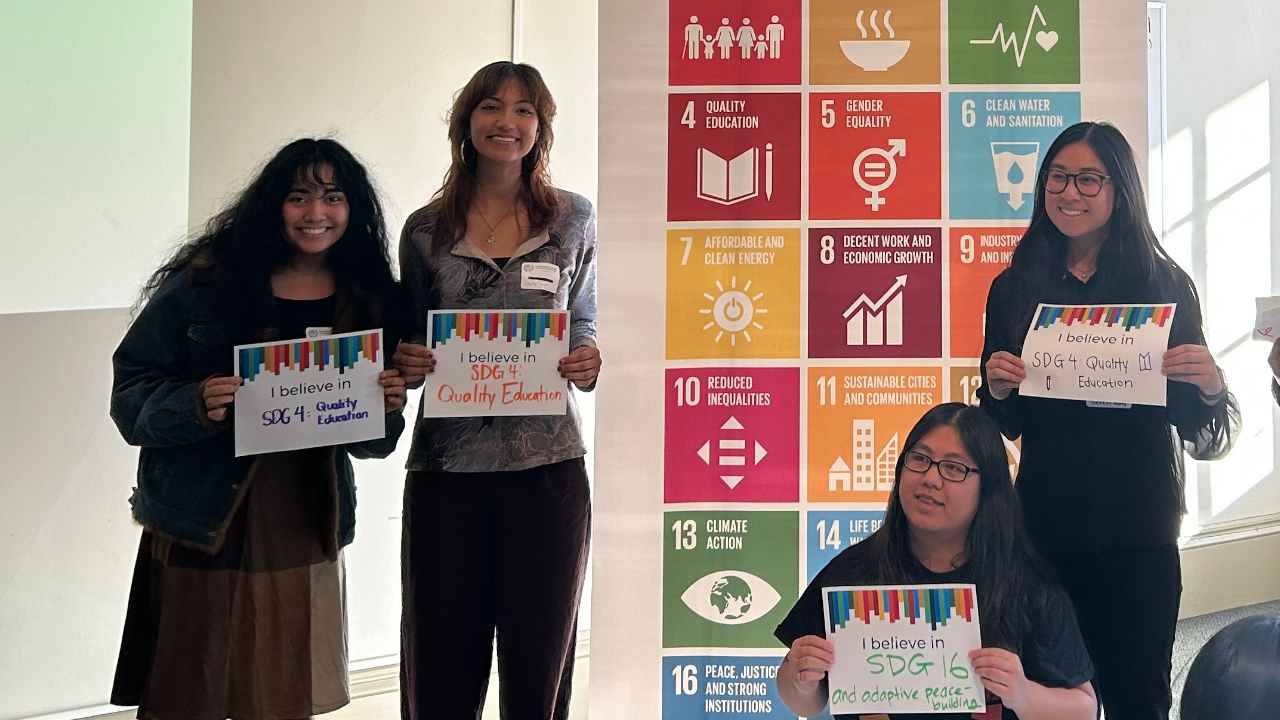
The Hidden Yet Undying Power Driving the UN Sustainable Development Goals
What would a planet with zero poverty, hunger, discrimination and climate dilemmas look like? In 2015, the United Nations outlined 17 Sustainable Development Goals (SDGs) that can lead to peace and prosperity on Earth. Each SDG ties to another—for instance, achieving zero hunger involves ensuring global financial security (SDGs 2 and 1). Only when zero hunger has been achieved can good health and wellbeing (SDG 3) begin to emerge. This integrated nature encourages social, economic and environmental sustainability.
While working toward an SDG may seem daunting, a single tactic can guide your actions through an often-overlooked form of motivation: empathy.
Empathy as a Source of Power
Before delving into the potential of empathy to empower individuals, communities and nations across the globe, I will define both empathy and power in the simplest of terms. Empathy refers to the ability to understand and share feelings with others. Power explores the ability to enact change through energetic force. When leveraged to enact positive social change, empathy acts as an unextinguishable source of power. Without empathy as a form of motivation, the 17 SDGs may seem beyond reach. However, applying it to your daily thoughts, activities and interactions can boost your morale while revealing a plan of action rooted in increasing global equity.
As poet Elizabeth Thomas expresses, “Empathy is the only human superpower—it can shrink distance, cut through social and power hierarchies, and transcend differences.”
Sympathy vs. Empathy
As you comb through each SDG, feelings of concern may arise. But do you move away with a sigh, or do you ponder what next steps to take in order to actualize the mission of said goal? The first choice involves acknowledging yet refraining from engaging with the complex circumstances contributing to suffering around the world. In contrast, the second choice involves internalizing and examining the struggles the planet and its inhabitants encounter in their quest for peace and prosperity. This distinction separates sympathy from empathy and passiveness from action.
Media, Overexposure and Consequent Desensitization
As of 2024, 96 percent of adults in the United States say they use the Internet (“Internet, Broadband Fact Sheet”). Of this percentage, they spend an average of seven hours a day online (Leake). This includes accessing global news through various forms of media, most notably social media. While a constant stream of information enables individuals to increase their awareness of local and global events, when overexposed, they may become desensitized to such content. Desensitization, which also develops as a defense mechanism against shock tactics and traumatizing content, prevents audiences from internalizing information (Seu 183-184). Moreover, the consequent inability to express empathy results in indifference and a lack of action toward the SDGs. As over 63 percent of the world has access to the Internet (Ritchie et al., 2023), these consequences occur at local, regional, national and international levels. You may have noticed instances of desensitization to media content in your own life, but all is not lost! Below, I will discuss how to counteract the effects of such a pervasive force.
Origin of Empathy
Instead of covering the historical background of empathy, I must reveal its origin: you. Without empathy for yourself, how can you know how and why to empathize with others? Empathy must start from within, and the intuitive steps you take holding it as a core value will not only improve your wellbeing but also aid in actualizing an SDG—no matter to what degree.
In an era fraught with humanitarian crises that climate change only exacerbates, we cannot let our empathy fade and indifference prevail. If we champion empathy as a core value to follow and as a mantra to recall, we can act—with steps small and big—rather than hope for a more equitable world.
As a tutor for students from marginalized communities in the U.S. and beyond, I have sought to expand inclusive learning through my teaching practices. Accessibility involves establishing a baseline of accommodations and building upon them. As a result, all students, regardless of their individual needs, can thrive. Without accessible learning foundations, we cannot bring about quality education (SDG 4). Of course, we must ensure that quality education, as a basic need, is free. Yet how can we achieve this if we do not employ empathy in every sector of society? If we do not balance empathy for ourselves and others, including people, animals and the environment?
- Author, No. “Internet, Broadband Fact Sheet.” Pew Research Center, 7 Mar. 2025, www.pewresearch.org/internet/fact-sheet/internet-broadband.
- Leake, Lindsey. “You’ll Probably Spend at Least 17 Years of Your Adult Life Online. Here Are Some Expert Tips For Curbing Screen Time While Staying Connected.” Fortune Well, 25 Sept. 2024, fortune.com/well/article/screen-time-over-lifespan.
- Ritchie, H., Mathieu, E., Roser, M., & Ortiz-Ospina, E. (2023, April 13). Internet. Our World in Data. https://ourworldindata.org/internet
- Seu, Bruna Irene. “‘Your Stomach Makes You Feel That You Don’t Want to Know Anything About It’: Desensitization, Defence Mechanisms and Rhetoric in Response to Human Rights Abuses.” Journal of Human Rights, vol. 2, no. 2, June 2003, pp. 183–96. https://doi.org/10.1080/1475483032000078170.
Program Information
The Global Affairs SDG Internship provides an opportunity for UC Davis undergraduate students to actively contribute to campus engagement on this global agenda. SDG Interns gain substantive understanding of the SDGs, and develop professional skills such as organizational strategy, project design and management, partnership development, outreach and analytical skills. The internship is open to students in all majors. For more information about the program and application process, please click here.